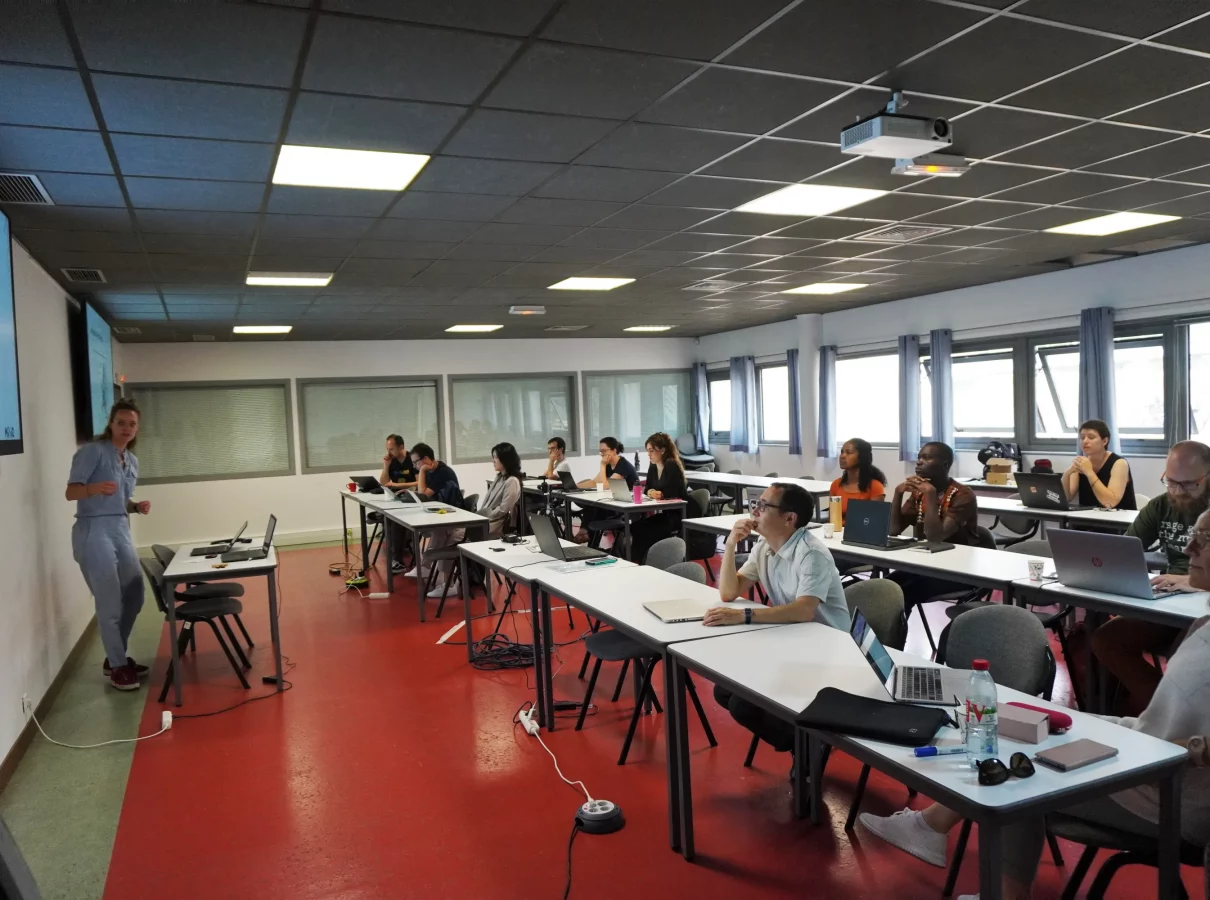In support of the uptake of the MOOD research and results among young researchers in health science, OpenGeoHub organized in collaboration with the MOOD Coordination CIRAD the first in-person Summer School on 20th and 21st June, followed by one day dedicated to the MOOD hackathon on Anti-microbial resistance surveillance. What happened? Here are a few insights.
MOOD Summer School 2022 – first edition
Throughout a three-day full-immersion training, the Summer School hosted 13MOOD lecturers, among which Timothee Dub and Henna Mäkelä (Finnish Institute for Health and Welfare, Finland), Facundo Muñoz (Cirad, France), Tom Hengl and Leandro Parente (OpenGeoHub, Netherlands), Francesca Dagostin (Fondazione Edmund Mach, Italy), Mathieu Roche (Cirad, France) Nejat Arinik (INRAE, France) and Mehtab Alam Syed (Cirad, France), William Wint (E.R.G.O., UK) and Cederic Marsboom (Avia-GIS, Belgium) and 1 guest lecture: Dr Sangeeta Bhatia (Imperial College London, UK).

Dr Bhatia is a mathematician and a software engineer interested in probing biological systems using mathematical and computational tools. In her online lecture ‘Using digital surveillance tools for near real-time mapping of the risk of infectious disease spread’, she demonstrated the challenges of using data extracted from ProMED email system – a longstanding informal disease surveillance network- for real-time analysis.
In this edition of the summer school, a total of 55 young researchers among which PhD candidates, MSc students and young researchers, joined the lectures held at the Agropolis building in Montpellier or online from different regions of Europe and diverse backgrounds ranging from health science, epidemiology and animal health.
The programme included theoretical lectures and hands-on practicals, and all sessions were video recorded. Videos will soon be published on the MOOD website without access restrictions touching upon the following topics :
- Epidemic Intelligence (IBS & EBS data sources)
- Analytical tools of IBS data (time series analyses and e.g. thresholds)
- Covariates data and spatial mapping in epidemiology
- Supervised/unsupervised Machine Learning methods of IBS data;
- Data mining for EBS
- Modelling of infectious diseases.
Participants were also invited to take part in the ‘R’ crash course to improve their skills in this open-source programming language.
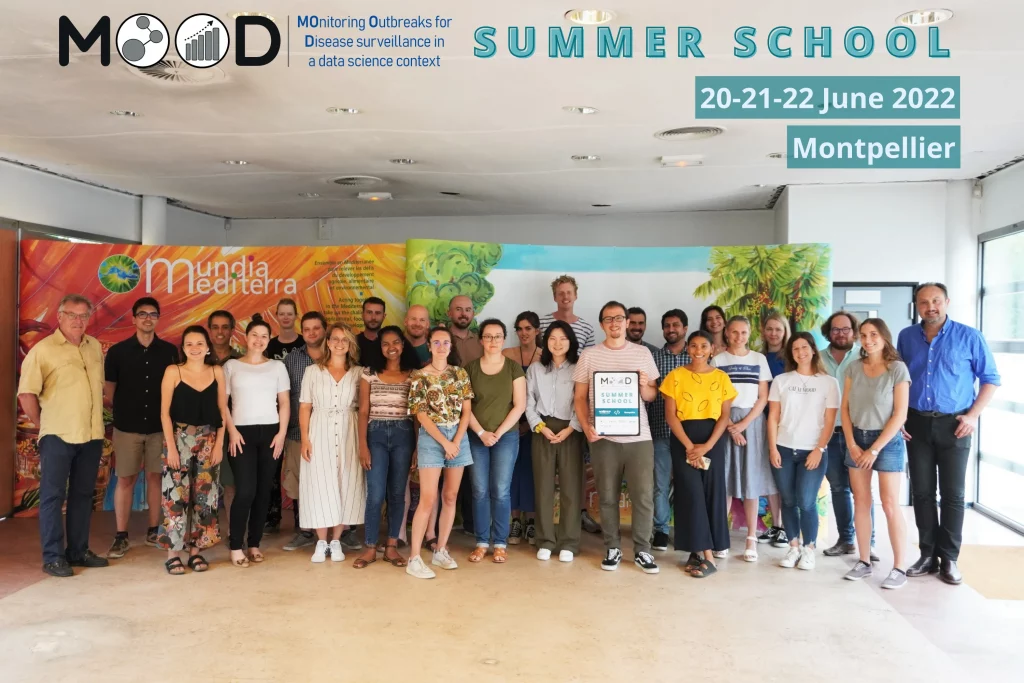
The first in-person MOOD hackathon: untangling AMR surveillance
To date, Anti-microbial Resistance (AMR) surveillance in Europe and elsewhere is mainly relying on indicator-based surveillance, involving structured data collection according to clear case definitions. Seeking to support the early detection, assessment, and monitoring of current and future AMR threats across Europe, the MOOD project aims to explore the opportunities of mining unstructured surveillance data including those from media sources.
In this hackathon organized by Mathieu Roche, Maguelonne Teisseire (INRAE and WP3 leader) with the collaboration of Esther van Kleef (ITM, Belgium), two interdisciplinary teams were formed to work collectively on a technical challenge related to AMR information extraction.
Throughout the late morning and the afternoon, ten participants divided in Team 1 and Team 2 were challenged to develop new technical solutions that will mine and/or visualise unstructured media data. The main objective of the task involved the development and testing of classification approaches that automatically identify text on AMR events and types of AMR issues (e.g. animal, food, etc.) in unstructured data (e.g. news, tweets) and classify these events by relevance for epidemic intelligence purposes:\
- Supervised classification task | First level classification over three classes: New information, General information, or Irrelevant
- Supervised classification tasks – Second-level classification over eight classes
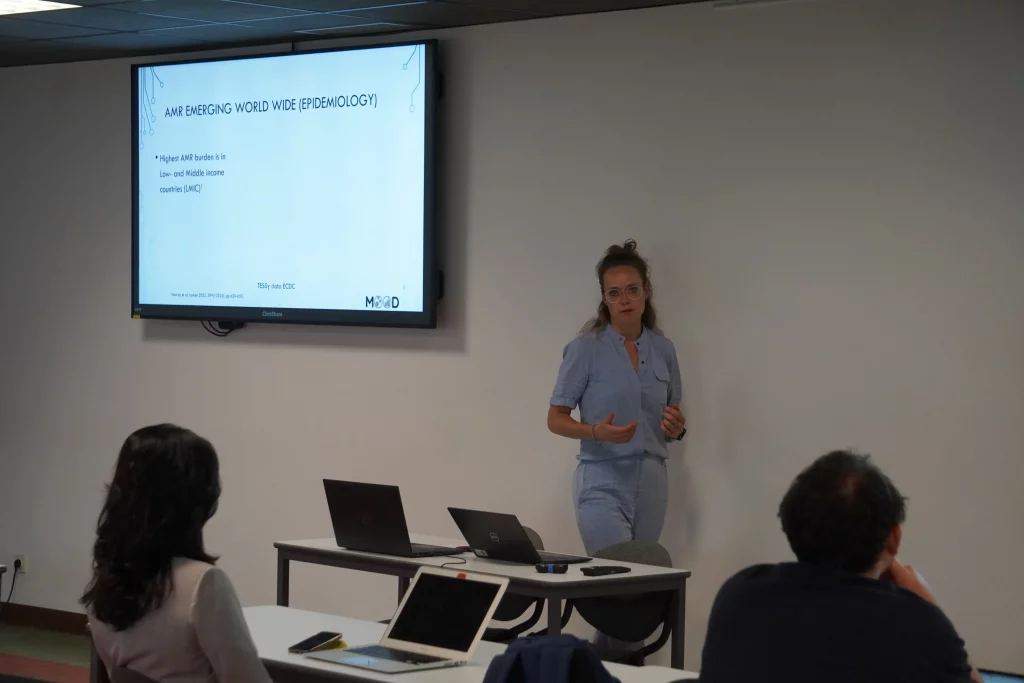
Participants found information about the labels in materials provided via Mattermost, along with information about the sources of the datasets. They also received two kinds of data: news media and social media.
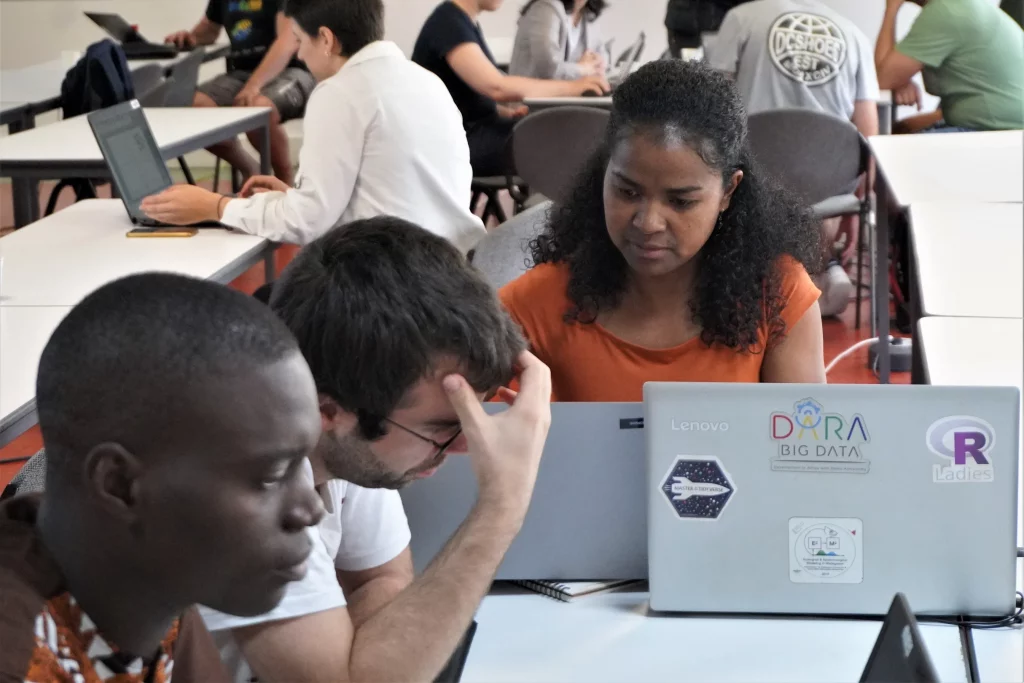
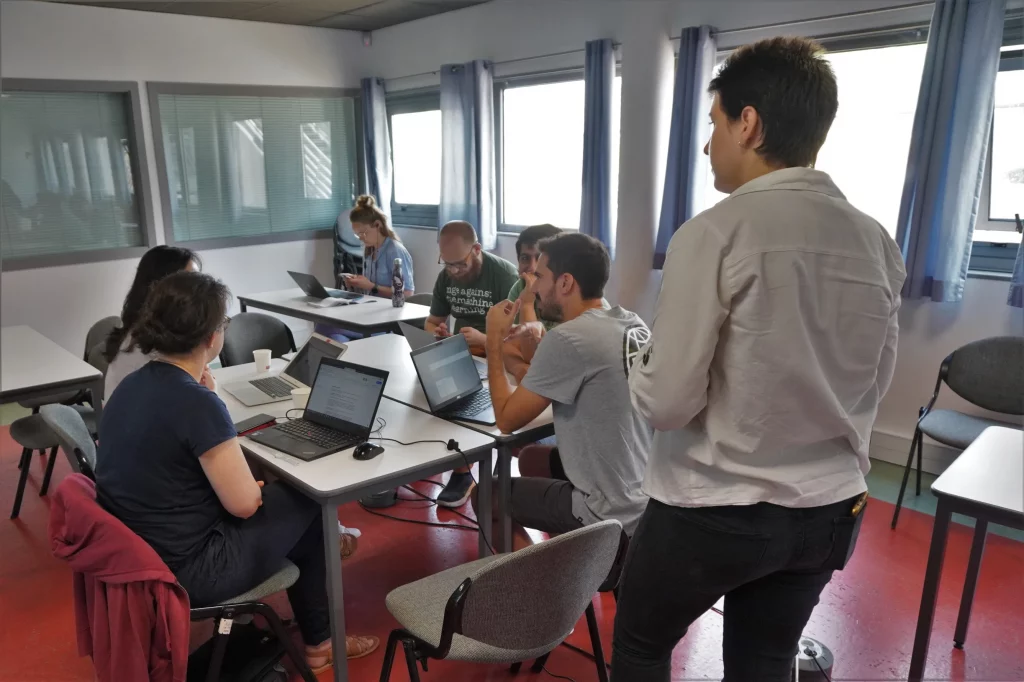
The teams sought to answer: How classification algorithms are working on both types of classification tasks? What type of pre-processing could have an impact on the obtained results? How imbalanced data issues in the datasets could be taken into account? How topic modeling approaches could highlight sub-topic in a dedicated topic? Which kind of terms are highlighted?
And the winner(s) is…
Over the last hour of the MOOD hackathon, the two teams duelled over the presentation of the results in two ways: (a) an objective evaluation with the precision, recall and F-measures scores and (b) the qualitative restitution with some methods for mining and visualization seen during the summer school or other ones.
The jury, composed of Esther van Kleef, Wim van Bortel, Maguelonne Teisseire, and Mathieu Rocher, with the special presence of Eric Cardinale, Head of veterinary public health at CIRAD, evaluated how innovative the proposed methodology was, which kind of information could be extracted and how useful the proposed solution was for AMR experts.
s described by the jury, Group 1 presented a strong qualitative approach and demonstrated deep research about the problem, adding new features to the extraction method and presenting an overall good model performance. Although it was pointed out that the method was not that innovative, and better validation of the new features was needed, the jury awarded them with the first MOOD-hack price!
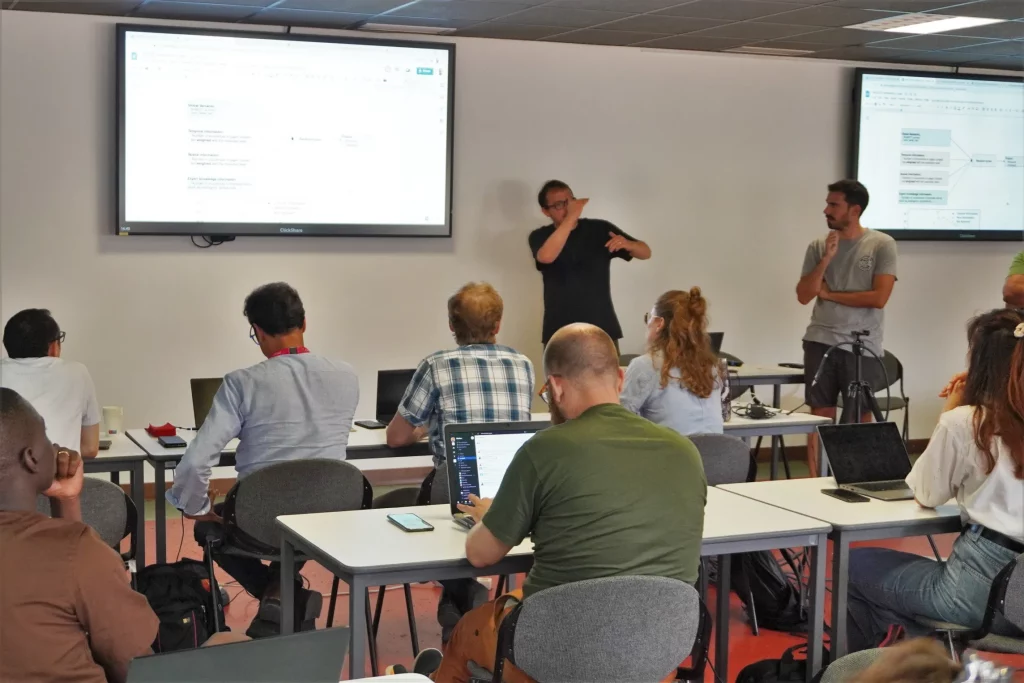
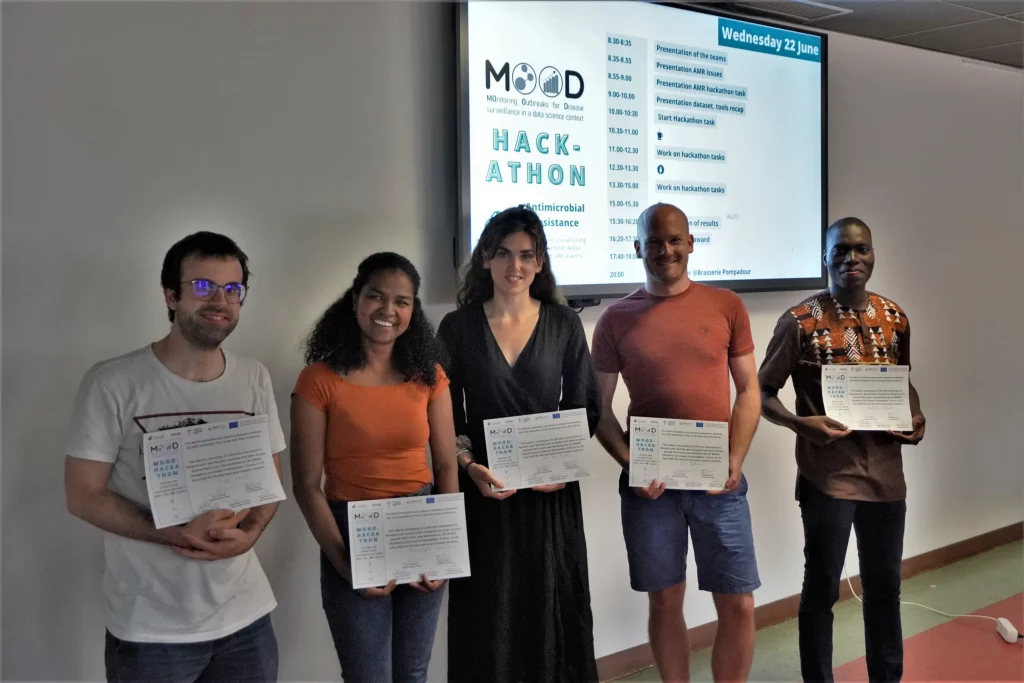
The award, consisting of a lifetime subscription to leanpub.com and the peer-reviewed and Open Access journal PeerJ.com, was attributed directly by the MOOD hackathon jury board.
Next edition: 2023
The MOOD summer school is one of the capacity-building activities planned for improving knowledge on epidemic intelligence for disease surveillance, including identification of re-emerging infectious diseases and antimicrobial resistance, the changing drivers fueling disease spread, and surveillance and early warning techniques in pandemic threats.
OpenGeoHub has planned the second edition for the MOOD Summer School and MOOD-Hack! for spring 2023. Follow the updates on the MOOD website, newsletter and Twitter to receive the latest news on the MOOD Summer School 2023!


